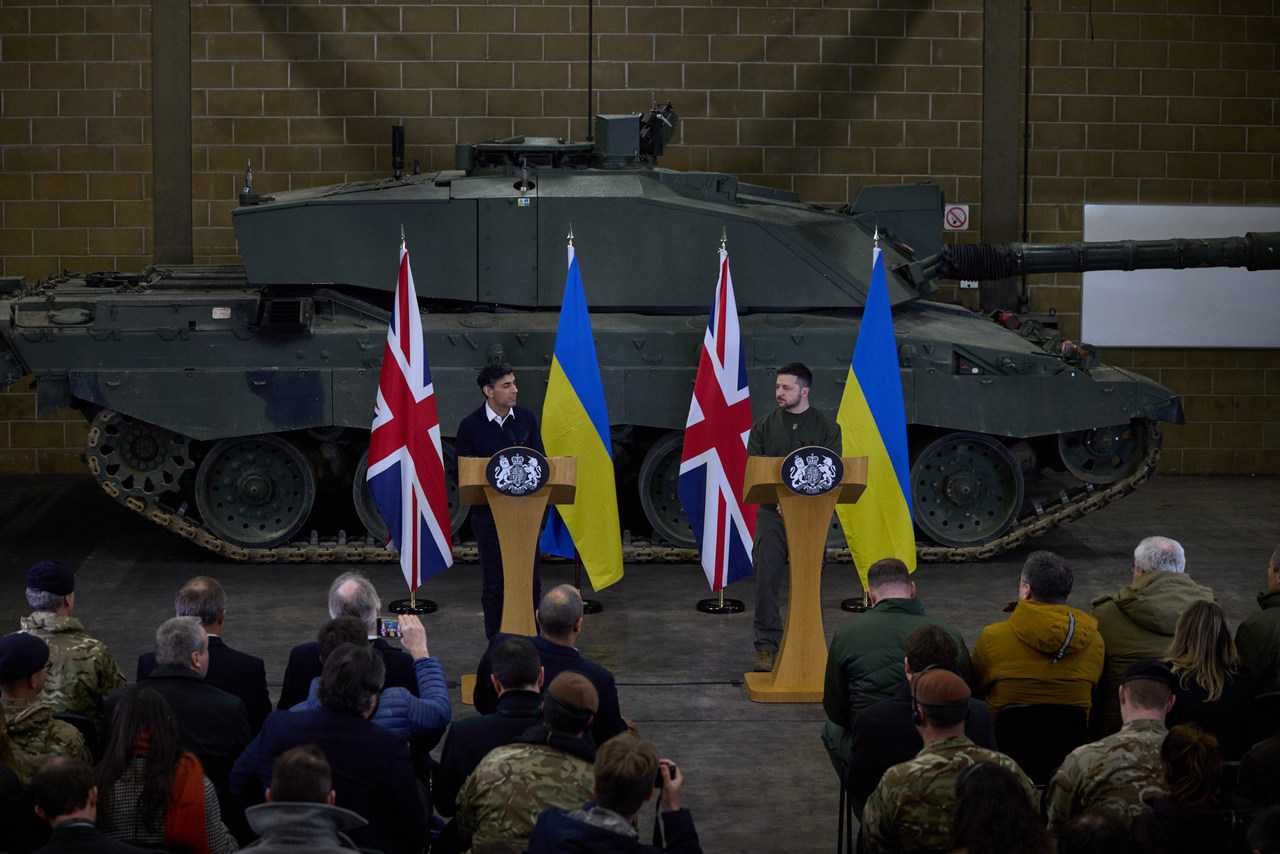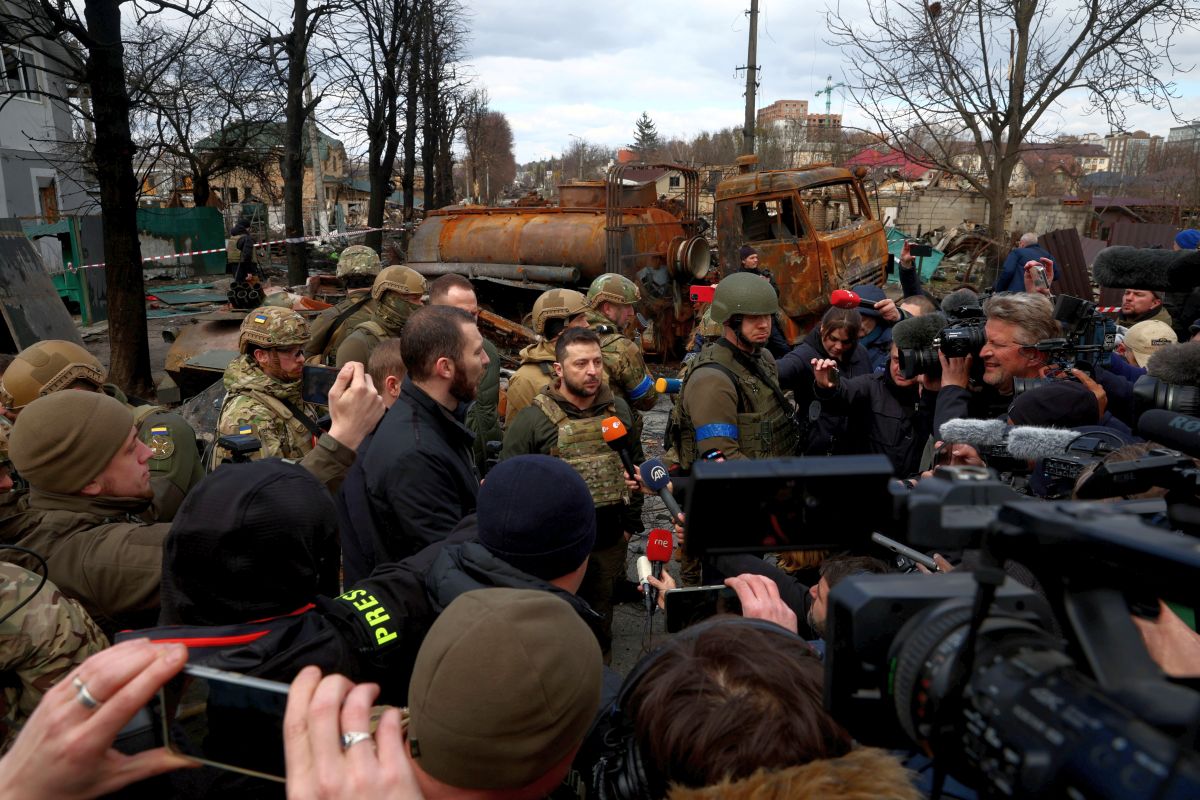Zelensky Visits European Leaders
On 8–9 February, Ukrainian President Volodymyr Zelensky visited the United Kingdom, France, Belgium—where he took part in an extraordinary summit of the European Council—and Poland. The trip was a success in terms of public relations and brought, among other things, promises of new military aid to Ukraine.
 POU / Zuma Press / Forum
POU / Zuma Press / Forum
What was the context of the journey?
This was President Zelensky’s second foreign trip since the 24 February 2022 Russian invasion of Ukraine (his first was to the U.S. in December 2022). The main destinations this time were the UK and Belgium. The Ukrainian president also briefly visited France where he met with President Emmanuel Macron and German Chancellor Olaf Scholz. On his way back to Ukraine, he also talked with Polish President Andrzej Duda in Rzeszów. The trip took place ahead of an expected Russian offensive and the need to raise more military assistance for Ukraine from partner countries. Zelensky’s main objective was to maintain high interest in European countries in defending Ukraine against the Russian aggression and to persuade governments and the publics of those states to provide combat aircraft that will allow Ukraine to better protect, among other things, critical infrastructure under attack by Russia. The visit to Brussels was also linked to the EU-Ukraine summit held a week earlier (3 February) in Kyiv.
How did the visit to the UK go?
On 8 February, Zelensky met with Prime Minister Rishi Sunak, King Charles III, and Ukrainian soldiers training at a base in Dorset. He also spoke to parliament, encouraging the British to hand over the fighter planes and thanking them for their support. Talks with the UK prime minister focused on military support for Ukraine, with Britain vowing to speed up work on sending equipment promised earlier (including tanks) at the Ukraine Defence Contact Group meeting at Ramstein Air Base, hand over long-range artillery, and continue training Ukrainian soldiers. Britain also pledged to train Ukrainian military pilots. Although no promises were made to hand over aircraft, Prime Minister Sunak did not rule out the possibility in the future. The document signed by the two leaders at the end of the meeting—described as a declaration of unity—included announcements about the implementation of the 2020 Political, Free Trade and Strategic Partnership Agreement and further British sanctions against Russia.
What happened on the trip to Brussels?
On 9 February, Zelensky gave a speech to the European Parliament and took part in an extraordinary meeting of the European Council. He also met with King Philip I of Belgium and Prime Minister Alexander De Croo. The Ukrainian president called on EU countries to impose further sanctions on Russia’s IT and nuclear energy sectors and against its drone and missile industries. He discussed with Member State leaders the provision of military equipment, in particular the need to provide Ukraine with combat aircraft, armoured vehicles, artillery, and air defences. Although Zelensky did not receive specific promises, some leaders spoke positively about the continued transfer of weapons. European Commission President Ursula von der Leyen announced a new package of sanctions against Russia. She also praised Ukraine’s efforts on the road to European integration but, like a week earlier during the EU-Ukraine summit, offered no specifics about the possible start of membership negotiations.
What are the effects of Zelensky’s European visit?
The trip generated widespread media coverage and was a success in terms of public relations for Zelensky, especially his speeches to the British and European parliaments. It did not, however, achieve its main objective of a binding declaration regarding the transfer of combat aircraft to Ukraine, although it did spark debate on the subject. Both Prime Minister Sunak and other European leaders have promised further military support for Ukraine, the details of which will most likely be discussed at the next meeting of the Contact Group at Ramstein later in February (where they may specifically address the issue of Western aircraft). The reassurances by European leaders about Ukraine’s EU future is also important in the context of maintaining the high morale of Ukrainian society as it resists the Russian aggression. Zelensky’s last-minute meeting with the French president and German Chancellor in Paris demonstrated the importance these politicians place on media reports about seeing the Ukrainian president in person, but it is unlikely to alter their mixed policies towards Ukraine.



